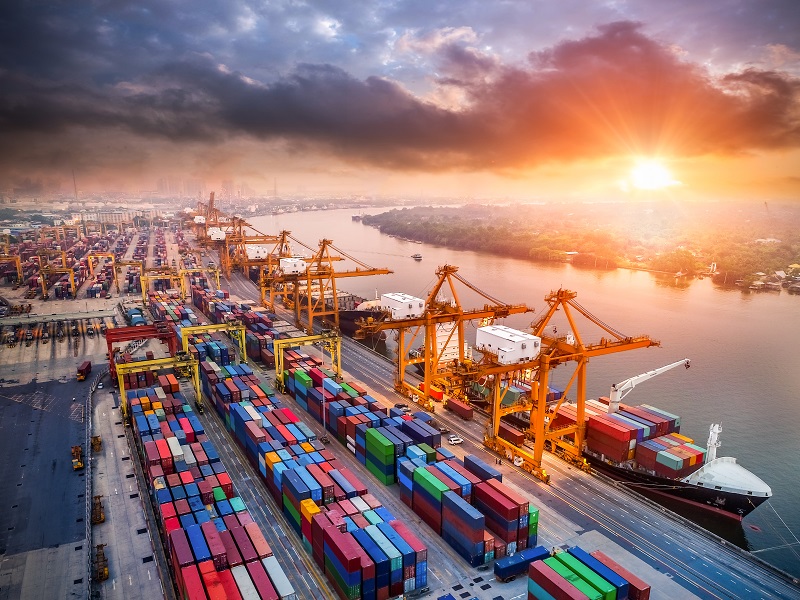RUSSIA’S WAR AGAINST UKRAINE:
A PROPOSAL FOR THE EU TO PRESS A CEASE FIRE, PROTECT NATO’S EAST FLANK AND REBUILD EU MILITARY DEFENSE AND ENERGY SECURITY
The paper sets five Proposals for European Leaders to press the ceasefire and protect NATO’s eastern flank in the short term. In response to the embargo on imports from Russia, we propose an Energy Emergency Program and, in the medium and long term, two Energy Security Plans for the Union. At the same time, we propose a Plan for the Recovery and Strengthening of EU Security and Defense and for the Preservation of Democracy. These proposals are based on an analysis of Russian state funding, the EU’s energy dependence and its weaknesses in military and geostrategic terms. The summary of the proposals is:
First Priority: stop the destruction of lives and infrastructure in Ukraine. Proposal 1: Immediate embargo on oil and natural gas imports from Russia, pending a ceasefire by its armed forces in the invasion of Ukraine and opening of channels for humanitarian aid in the country.
Second Priority: protect EU countries that could be threatened by Russia’s continued advance. Proposal 2: Declaration by NATO that it will respond immediately and unconditionally to any aggression by Russia against any Member State, and that it will respond immediately to any nuclear threat, followed by the immediate deployment of six US Army battalions to the Baltics and Poland; and six battalions of the EU Rapid Response Forces to the eastern flank.
Third Priority: protect the EU from the effects of war and strengthen energy security. Proposal 3: Elaborate an Energy Emergency Plan, to mitigate impact of the embargo, with a system of allocation and controlled prices of natural gas and fuels for different uses, giving priority to meeting the basic needs of the populations. Suspension of carbon payments during this phase. At the same time, draw up a plan to strengthen the EU’s energy independence and security in the next 3 (objective of autonomy from Russian sources) and 5 years.
Fourth priority: rebuilding the EU’s defense systems and protecting Democracy. Proposal 4: Declaration by NATO that all countries will increase their military expenditures by at least 2 percentage points of GDP in the next two years, and with a minimum of 2% already in 2023, as well as the tripling of Rapid Intervention forces. Declaration by the Council of the constitution of an EU Defense Reconstruction Fund, with at least €500 billion for the next 5 years, with own resources from the European Commission. Protect democracy by tightening lobbying laws, controlling strategic investments and party funding.
Fifth priority: humanitarian aid and reconstruction of Ukraine. Proposal 5: Elaboration of a plan for the distribution of refugees among the Member Countries (Portugal would house around 80 thousand refugees). Creation of a Humanitarian and Reconstruction Fund for Ukraine of around €50 billion by the Commission for the next two years.




 At the close of the global financial crises, Greece, Ireland and Portugal, and later Spain, experienced severe economic and financial crises. This paper compares the adjustment programs undertaken by the four countries. The sudden-stop of capital flows led to substantial official assistance by the EU, ECB and IMF estimated at 1.4 Trillion Euros which demonstrated the solidarity among EU countries. The crises established other records: Ireland had one of the costliest banking crises and Greece a depression. We will discuss which factors – program design, structure of the economy, institutional and political capabilities and Government implementation capacity – contributed to the success of Ireland and the difficulties of Greece, with intermediate cases like Portugal and Spain. Contrary to a number of economists, the adjustment programs in these countries were largely in accordance with previous programs or with overall IMF experience, except for Greece. We discuss why this was a special case and the factors that contributed to the failure of the previous two adjustment programs. The lessons drawn for the future are in sharp contrast with most “official” reports, by emphasizing the role of “common factors” versus idiosyncratic factors in the Euro zone, problems caused by procrastination in adopting the programs, lack of program ownership, the difficulties of simultaneous contractionary policies of the core, the importance of expectations formation and the role of targeted credit policies. We also criticize the lack of substantive supply policies, like innovation and resource switching policies that could have speeded-up adjustment and mitigated the impact on potential growth.
At the close of the global financial crises, Greece, Ireland and Portugal, and later Spain, experienced severe economic and financial crises. This paper compares the adjustment programs undertaken by the four countries. The sudden-stop of capital flows led to substantial official assistance by the EU, ECB and IMF estimated at 1.4 Trillion Euros which demonstrated the solidarity among EU countries. The crises established other records: Ireland had one of the costliest banking crises and Greece a depression. We will discuss which factors – program design, structure of the economy, institutional and political capabilities and Government implementation capacity – contributed to the success of Ireland and the difficulties of Greece, with intermediate cases like Portugal and Spain. Contrary to a number of economists, the adjustment programs in these countries were largely in accordance with previous programs or with overall IMF experience, except for Greece. We discuss why this was a special case and the factors that contributed to the failure of the previous two adjustment programs. The lessons drawn for the future are in sharp contrast with most “official” reports, by emphasizing the role of “common factors” versus idiosyncratic factors in the Euro zone, problems caused by procrastination in adopting the programs, lack of program ownership, the difficulties of simultaneous contractionary policies of the core, the importance of expectations formation and the role of targeted credit policies. We also criticize the lack of substantive supply policies, like innovation and resource switching policies that could have speeded-up adjustment and mitigated the impact on potential growth.